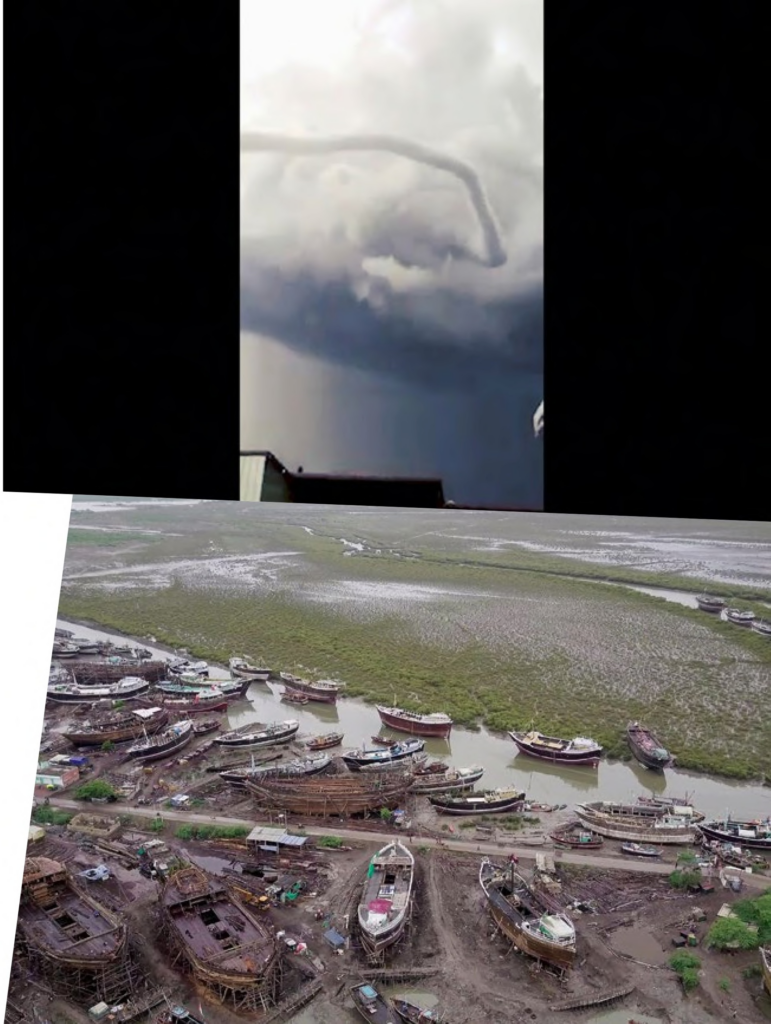NIDHI MAHAJAN & MOAD MUSBAHI
Nidhi Mahajan born 1984 in Bombay, India, lives and works between Santa Cruz, CA, United States, and Bombay Moad Musbahi lives and works on the move
An Excerpt from Kitab Al Marasi: A Composite Navigational Manual for the Indian Ocean
2024

Nidhi Mahajan is an anthropologist whose research examines transregional maritime connections across the Indian Ocean through shipping and trade networks, ports, and their entanglements with state sovereignty. She has a PhD in anthropology from Cornell University and is assistant professor of anthropology at the University of California Santa Cruz. She was recently a Research Fellow at the Africa Institute, Sharjah. Mahajan has developed exhibitions at Fort Jesus Museum in Mombasa, Kenya; Khoj International Artists’ Association in New Delhi; and for the 2019 Sharjah Architecture Triennial. Her work has been published in Comparative Studies of South Asia, Africa, and the Middle East and History of the Present, among other international journals.
Moad Musbahi is an artist, educator, and independent curator whose work as an artist takes the form of collaborative installations, exhibitions, and readings. He holds master’s degrees from the Architectural Association and the Royal College of Art in London. He is a doctoral researcher in anthropology at Princeton University and is a visiting lecturer at the Royal College of Art. He has recently presented work at the Kunstverein in Hamburg, Germany (2023); the 18th Venice Architecture Biennale (2023); and the 7th Singapore Biennale (2022). Musbahi currently co-directs the “Taught to Travel” roaming program at the Harun Farocki Institut in Berlin in collaboration with RAW Material Company in Dakar.
An Excerpt from Kitab Al Marasi (2024) is a composite navigational manual for the Indian Ocean that draws from the historical cultural practices of local sailors to confront the uncertain future of coastal communities across the Indian Ocean facing extreme climate degradation. These traditional forms of knowledge interweave practices and modes of being from the collective generational memory where sailors on wooden vessels called dhows spoke with saints and read the winds, sky, and sea, using methods such as bird sightings or gauging the color of the water to navigate the ocean and predict the weather. Taking this intangible heritage as its starting point, the work creates a repository of Indigenous maritime knowledge that firmly ties the risk of climate change with vernacular forms of knowledge. In bridging the forum of art and cultural work with the space of international heritage and environmental organizations, this research work proposes how the different modalities of display and deployment cast together methods of anthropology, documentation, and Indian Ocean temporalities.
